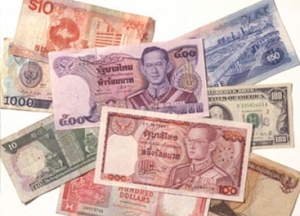Facing the Real Risk of Theft from Your Bank Account in China
An increasing number of friends are reporting troubling cases of theft from their China bank accounts. One friend, after years of working in China and saving every penny, was preparing to return to the US, but suddenly every penny in her ICBC bank account was stolen. The ICBC bank officials told her that someone had a copy of her card and had taken the money out. She asked how this was possible without knowing her password. No explanation was given, except that it was somehow her fault. She spent five days arguing with them and got nowhere. They said that the thief could have been working with her to perpetuate fraud on the bank, so why should they refund her money? Her only option now is to sue, but she has to go back to the US soon and fears she won’t have the ability to pursue the case. But we’ve encouraged her to work with a lawyer to fight this. She will, and I hope to have good news to report sometime.
Her story has almost exactly the same set of facts that we find in a chilling account, “How I sued the world’s largest bank and won” at Shanghaist.com. In this case, it was a smaller amount, 15,000 RMB that was taken from the author’s ICBC account. He encountered the same helpful consumer service policies and attitudes, and was forced also to sue for something that was clearly not his fault. He won, and it only took 7 months and some modest attorney fees to get his money back.
If you have a bank account with an ATM card, there is a real risk that one day money will begin disappearing from your account. There are some very high risk factors in China you need to understand:
1) The daily limit for ATM withdrawals is much higher than it is in the U.S. and Europe. A thief typically can take out 20,000 RMB a day (over $3,000), which is 5 to 10 times higher than typical US limits.
2) The daily limit may not be over a 24-hour period, but may be based on the calendar date, so if that applies to your bank, then a thief can take 20,000 RMB out at 11:55 pm, and another 20,000 RMB out at 12:05 PM.
3) Banks in China often don’t have effective anti-fraud protection.
4) There are many thieves with card copying or card scanning devices who can make a duplicate of your card. If they or a small video camera can watch you enter your password, having your account number and your password leaves you defenseless.
5) Thieves can sometimes pull money out of your account without using your password. I don’t know how this happens, but it has happened to multiple people in China, and it happened to us with our US bank.
6) When someone pulls money out of your account without knowing your password, it should be the bank’s fault and they should reimburse you. But consumer service attitudes and policies may not be identical to those in your home country. China banks may tend to blame the customer and argue that maybe the thief was collaborating with you, so they might not cooperate unless you take them to court. You can sue and win in China, but it will take a lot of work and the help of an attorney.
Because money in the bank is so vulnerable, I suggest several best practices:
1) Do not keep large amounts in any single Chinese bank. Move a lot of it into US accounts without ATM cards or with two-part authentication, and keep plenty of cash.
2) Use your bank cards as little as possible. Instead, use cash to make payments when possible.
3) Do not let employees walk away with your bank card (they might run it through a card copier device of some kind). Keep your eyes on it.
4) Do not let your card be scanned in any place that seems questionable or seedy.
5) When using ATM machines, look for unusual devices, small video cameras, etc., that might have been added.
6) Keep good records of where you have been so that if the bank says it must have been you that pulled all your money out of your account in, say, Harbin, you can prove you weren’t in Harbin that day.
7) Monitor your bank account frequently, and make sure you receive automatic text messages when money is taken out of your ATM.
8) When you do find a problem, document in detail who you spoke with, what you said, what they said, etc. You will needs lots of documented details if you have to sue the bank to get back missing money.
9) Avoid trusting your money to any bank that has a bad track record of protecting the money of its customers. If you know of banks that have performed well in this regard, please let me know.
These problems are not unique to China, but they seem to be a lot more frequent here and more severe, especially with the high daily minimum that thieves can take out.
If you do online banking, your risks are also high due to hackers. I suggest you use complex passwords that you change often, and only use secure computers to access your bank accounts. It’s good to have a cheap computer that is never used for browsing but only for bank access, and even then keep good firewall and anti-spyware software on it, keep it updated, use more secure browsers like Chrome or Firefox, and don’t use untrusted wifi networks to access your accounts. For added security, use VPN when you access your bank account.
Don’t keep all your money in any one account, and keep a wad of cash somewhere, too. Thieves can get everything, but we shouldn’t make it easy for them.

